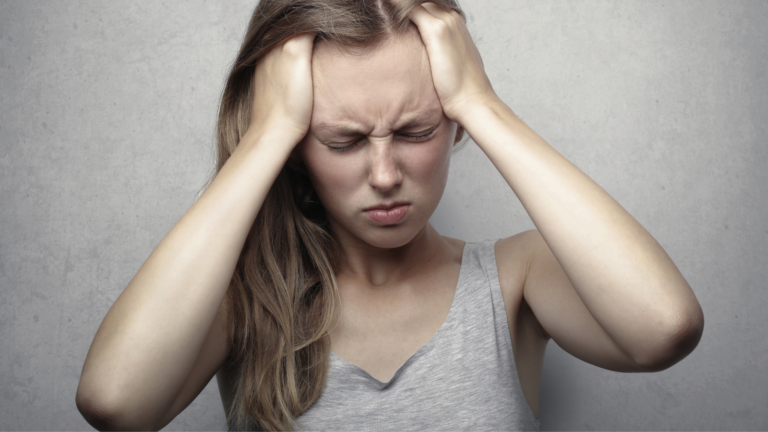
Understanding the impact of stress and how it may be fatal is critical for avoiding its adverse impact on both mental and physical health. Chronic stress causes a variety of negative physiological reactions, including raised cortisol levels, high blood pressure, and reduced immunological function, which can lead to catastrophic illnesses such as heart disease, anxiety disorders, and even early death.
Recognizing how stress affects our well-being allows us to make proactive efforts to manage it, such as adopting good living habits, practicing relaxation methods, and getting help when necessary, thus improving our quality of life and lifespan.
Stress affects our well-being quite negatively. What are the detrimental effects of stress? Read more to find out!
Physiological
Stress kills because it causes a consistent and continuous rise in heart rate and elevated levels of toxic substances in the body. This has an effect not only on the cardiovascular system but on all other areas of our body.
Stress can wreak havoc on the stomach and contribute to some gastrointestinal issues. Nausea, diarrhea, and loss of appetite are some of its common symptoms.
Over time, long-term exposure to various symptoms can take a toll on the body. Blood pressure fluctuations are most likely to cause circulatory system inflammation, raising the risk of hypertension, heart attack, and stroke, all of which are dangerously irreversible.
Emotional
Stress poses detrimental effects as it can be harmful to one’s emotional well-being. Effects of stress on one’s emotional health include behavioral changes such as social withdrawal, isolation, and communication problems. This is a point of concern as a sense of helplessness can lead to the development of harmful habits such as a sedentary lifestyle and impulsivity.
Impulsivity is expressed as impulse actions such as obsessive use of alcohol or drugs to relieve stress. All of these actions, know that when it becomes a habit, can make you more susceptible to disease as it weakens your immune system.
Furthermore, a weakened immune system increases your likelihood of triggering autoimmune disease and cancer. Or your body’s natural defense mechanism fails to distinguish between your cells and foreign cells, causing the body to attack healthy cells, which can also be life-threatening.
Psychological
Unmanaged stress can lead to personality changes that are common in stressed individuals, such as irritability, aggression, decreased interest in appearance, and timeliness. This is due to the fact that our bodies respond differently to stress chemicals. Continually developing these behaviors might lead to early stress and eventually more severe psychological problems.
Depression may emerge as a psychological impact of stress, which needs prompt intervention. Depression tends to cause a tragic reaction to stressful life situations, such as the formation of suicidal thoughts.
Different people express suicidal thoughts in various ways. Some are subtle, but these feelings can build over time. Take some time to manage your stressors to avoid potentially triggering psychological problems and losing precious life.
Mental
Stress can lead to issues with our ability to think clearly. Stress hormones have the ability to change the structure and function of some nervous system components, especially those involved in the processes of learning and memory.
Stress hormones, or ‘Cortisol,’ can impair the activity of neurons in a brain area responsible for long-term memory and problem-solving judgment. This explains why people who are continuously stressed have trouble concentrating, learning new information, and performing decision-making processes.
These changes, in combination with other factors, may raise the risk of developing mental illness, which can eventually impact the entire body, and immune system and lead to the development of more serious complications.
What is Stress?
Every one of us has encountered stress as we face challenges and decisions at some point in our lives. Besides, stress is a natural human response to various life situations. It does happen to everyone, and in fact, the human body is built to experience and respond to stress.
All of us experience changes in our lifetime, and in response to these changes, our nervous system is activated. Stress hormones and chemicals are then released into the bloodstream, triggering our fight-or-flight response. This can result in faster heart rate and breathing, restless energy, and greater mental attentiveness.
But are you aware that there are two types of stress? When we hear the word stress, we usually think of unpleasant emotions, feelings, thoughts, and conditions, which are called distress.
On the other extreme, eustress is positive stress. This stress can help us stay focused, determined, and prepared for danger. Eustress is however temporary, as it boosts your mood to meet the moment, then goes away after a while. When stressors persist, it then becomes an issue.
Sources of Stress
What affects you the most may differ from what affects someone else. You may be stressed as a result of a major event or incident in your life. It could also be from an accumulation of smaller issues and woes. Anything from personal or daily life to career and traumatic events can be your source of stress.
Some of the stressors identified in work concerns are too much work, job insecurity, burnout, dissatisfaction with your profession, and disputes with a boss and coworkers. Financial strain can also get you all worked up by arguing with loved ones about money and struggles in budgeting.
You can detect stressors even in your household! It could be family duties, your own or a family member’s health status, relationship conflicts, home relocation, and the loss of a loved one or even a beloved pet.
Association to one or more traumatic circumstances, such as crimes and traffic accidents, and even accumulated woes from daily life challenges can also cause you long-term stress if it is not addressed immediately.
Tips to Cope With Stress
After identifying your potential stressors and learning about some long-term consequences, how must you cope with stress? Explore!
Practice Mindfulness
Take time to look after yourself. Take a break from reality, even if it’s only a few minutes, a few times a day. Some ideas that allow you to unwind include sitting in silence with your eyes closed or taking a walk.
Mindfulness is a sustainable coping strategy for learning how to refocus your attention. Understanding that mind-body connection is the first step toward improved stress management and understanding how emotions influence your body.
Eventually, you can figure out the best things to do to bring your mind and body to a state of calmness. If you’ve discovered what calms and brings you happiness at a certain stressful moment, you’re doing a great job! You’ve finally figured out how to practice mindfulness to handle your stressors and prevent health complications from progressing.
Assess Your Defense Mechanisms
Defense mechanisms conceal emotional responses that you do not want to face. It is, however, typically done subconsciously. Here are some defense mechanisms you need to be aware of.
Repression. You may instinctively choose to hide uncomfortable thoughts and upsetting memories in the hopes of completely forgetting about them. This is referred to as repression. However, this does not imply that the memories totally disappear. On the contrary, repressing emotions can negatively impact behavior and relationships.
Projection. In here, you’re misattributing your own thoughts to the other person. As an example, instead of admitting that you dislike your new colleague, you opt to convince yourself that they dislike you.
Displacement. In this defense mechanism, you tend to target your frustrations at someone else who is weaker than you.
This is merely a selection of the different defense mechanisms available, many of which are normal and natural. However, if these methods are applied regularly, you run the danger of experiencing more mental distress. Recognize, acknowledge, and opt for healthier coping and relaxation techniques.
Get Up and Do Something Worthwhile
Every aspect of your body is affected in some way when you’re stressed. So getting up and exercising is probably the last thing on your mind. But did you realize that you don’t really have to spend solid hours at a gym to reap the benefits?
Dancing, aerobics, meditation, yoga, or simply walking around your community are all simple but great choices! You can pay attention to how the air or sunlight feels over your skin. Including this mindful aspect will help you break free from the negative mental cycle that often comes with high levels of stress. If you spend too much time at work, make an effort to organize more leisure time, whether alone or with others. According to studies, participating in hobbies that bring you happiness reduces stress by nearly half and lowers your heart rate.
Such activities can help you release endorphins, a feel-good hormone that can help you forget about your worries and develop a more positive mindset. It can also help you turn your distress into eustress or positive stress.
Over a day, even simple actions can add up. Make sure that whatever you choose, it’s something you enjoy, so you’re more likely to stick with it! The first step is to get up and move around.
Conclusion
Indeed, stress may not be fatal, but the habits you form over time may undoubtedly be harmful. This harm might include everything from the incitement of unhealthy habits to cardiovascular issues. Unmanaged stress eventually increases the chance of acquiring illnesses like cancer and even aneurysms that may result in early death.
It is critical to take control of your stress by prioritizing mental health through meditation and other healthy techniques. Always remember that stress relief is within reach! It’s never too late to learn how to maintain a sound mind in a sound body in a sound environment.
Discover and learn more about how to cope with life stressors! Feel free to leave some of your insights below.


